Part 2: The Challenge of Standing up for Patients in Mexico
In the second of a three-part series, people describe the challenges of pursuing fundamental rights for patients with neuroimmune diseases in Mexico. If you haven’t already read the first part of this series, click here.
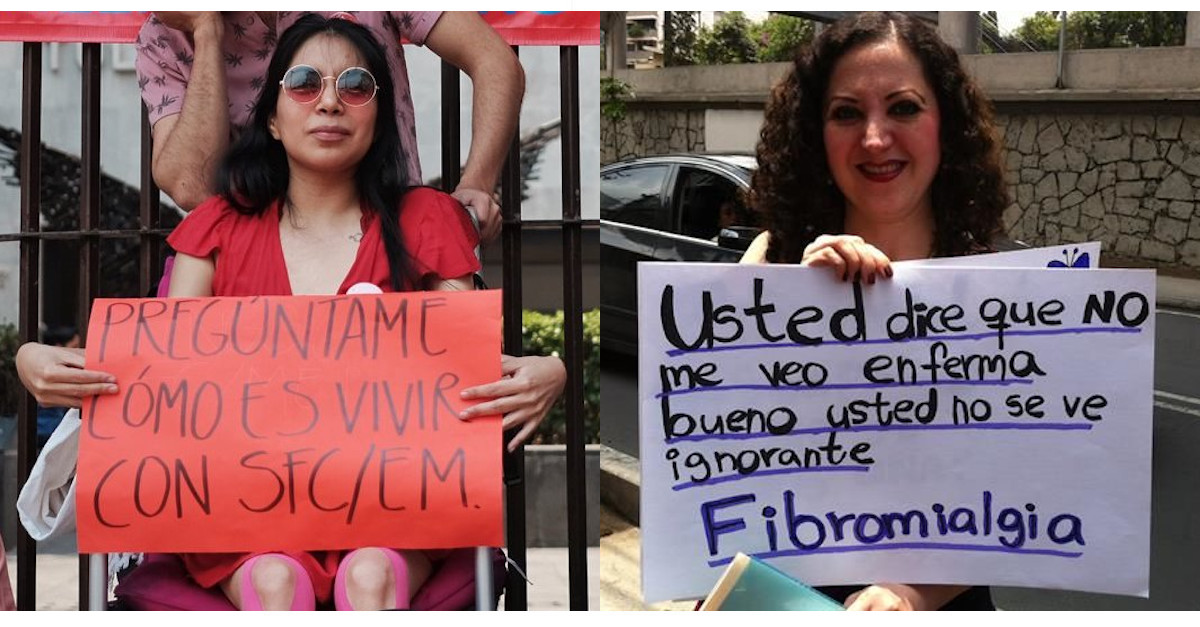

Versión en español • Versão em português
By Eric Pyrrhus
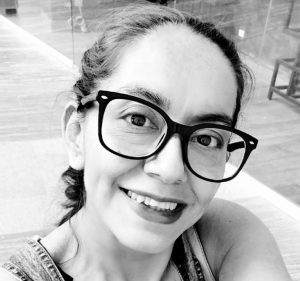
Silvia Bernal Rodríguez has been a patient advocate for many years. Photo courtesy of Silvia Bernal Rodríguez.
Silvia suffers from ME/CFS and fibromyalgia, and has advocated for patients for many years. “This is truly a battle without a truce.”
Despite years going from one doctor to another looking for help, the only treatment Silvia received was an unnecessary surgery that caused a leak in her brain and spinal cord. At risk of paralysis, she had to undergo a follow-up surgery to fix this serious medical error.
“In my long journey, I suffered many disappointments from many doctors and people who were unaware that people with our condition exist. That motivated me to seek a petition, to make our disease visible to the whole world,” Silvia says.
“I looked for a world-wide platform to have an impact — not only in Mexico but also in the world, where there are other people with our condition.”

Lorenya Thomae González founded the advocacy group Fibromialgia En-Acción. Photo courtesy of Lorenya Thomae González.
There are certainly others trying to change the situation for patients. “I am just another fibromyalgia patient and my only goal is to help people with my disease,” says 39-year-old Lorenya Thomae González on her advocacy site Fibromyalgia In Action.
“I have had fibromyalgia since 2004 and I want to help people like me.”
Although she dedicated herself to helping other patients, Lorenya needed help herself.
In October 2014, she confided to a friend, “I am very poor, I don’t have a job right now, we are struggling with many basic things like food. We recently had our electricity cut off, the phone has been cut off for four months, and we have a lot of debts.”
Shortly afterwards, she was forced to move in with her brother. Although her brother provided shelter to both Lorenya and her mother, who also suffered from fibromyalgia, he did not believe that they really were sick and unable to work. Therefore, his brother refused to provide Lorenya or her mother with any food or money.
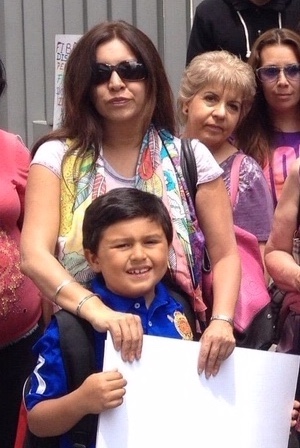
Verónnica Scutia is a single mother who is severely ill with ME/CFS and fibromyalgia. Image courtesy of Marisol Luna.
Verónnica fell seriously ill with ME/CFS and fibromyalgia while pregnant with her son in 2007, an experience that transformed her into a dedicated patient advocate.
“On May 13, 2007, I decided that I would never give my new son the excuse that ‘if he and I had to live the way we were living, it was because his mother had never tried to change anything’,” wrote Verónnica in a 2014 article.
“I decided that I would do the impossible through activism, so that I could get my health and my life back.”
It was a very ambitious decision. Her husband had just left her and she had been evicted from her house and left homeless five days before the birth of her son.
Although she had known what fibromyalgia was, she had just learned about ME/CFS shortly before the birth of her son. When she mentioned ME/CFS to the intern at the hospital, the intern responded that “it wasn’t taught to us at Anáhuac University (the best university of medicine in Mexico) where I had the best grades.”
But Verónnica was determined. So she started contacting journalists to try to raise awareness. “They started interviewing me and I always said I have fibromyalgia and ME/CFS. Well, in the media they always left out ME/CFS.” Clearly, raising awareness would not come easy.

A simple request for basic human rights
It started with a petition. In 2013, Silvia Bernal Rodríguez created a petition that simply asked for ME/CFS and fibromyalgia to be treated just like any other disabilities in Mexico. “I was with what I had at my disposal at that time — to send this petition to everyone I knew and also looking for strangers to support me, believing that this miracle could happen.”
Although the petition gathered almost 1500 signatures, Silvia was disappointed. “The reaction to my petition was not as I expected. So many times I persisted, thinking about how to get more signatures and looking for a way to convince patients that they indeed had rights that they could fight for.”
Nonetheless, Silvia did not give up hope. “That miracle is still on pause, because even though it didn’t prosper, I still believe that someday I will be able to have my miracle — no matter if I don’t get to see it, I want to have the hope that someone else will achieve it.”

May 12, 2015
On May 12, 2015 Silvia headed to the largest town square in the nearby city. “I went as I could to the Macroplaza, a very well-known place here in Monterrey. I took some pamphlets with me where the disease and its symptoms were explained. Alone, I gave the information to everyone who passed by, trying in some way with my little struggle to create awareness.”
At the same time, Lorenya Thomae González had organized a march in Mexico City to deliver Silvia’s petition to Mexico’s National Human Rights Commission. This march was the first time that many of the patient advocates had actually met in person.
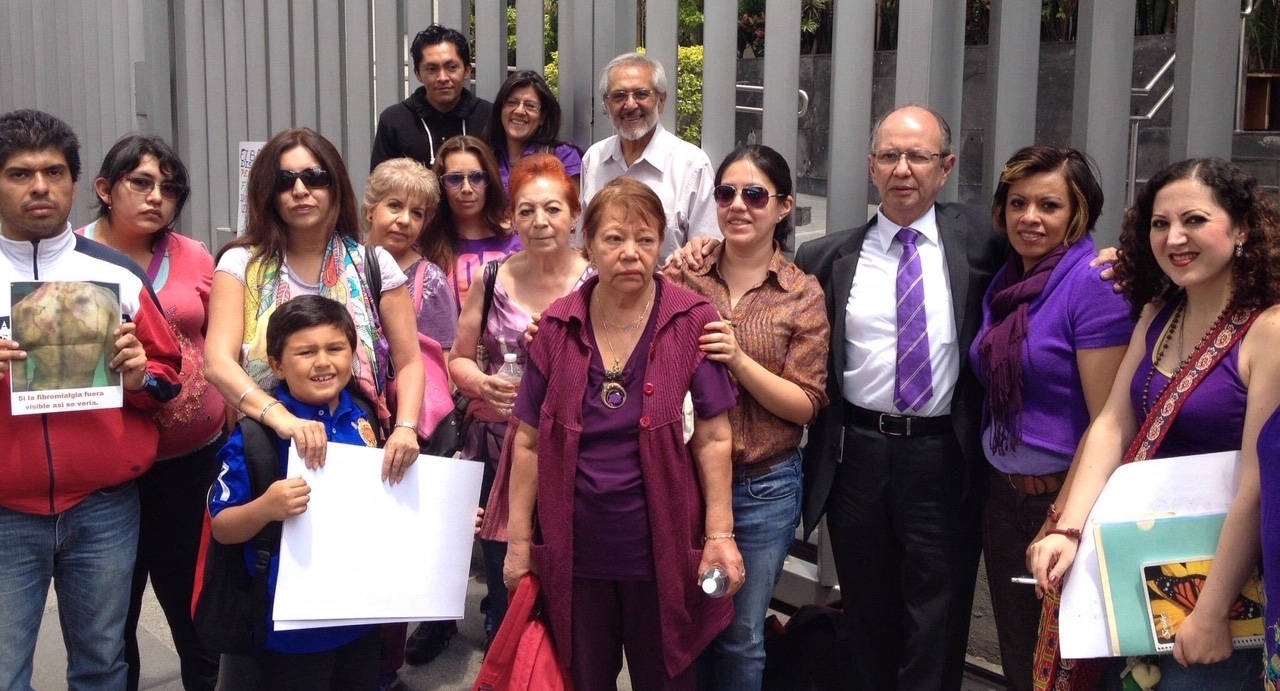
On May 12, 2015 advocates gathered in Mexico City, in order to march to deliver a petition. Image courtesy of Marisol Luna.
“The atmosphere was very friendly. It seemed like we had known each other for years. I met everyone there: Marisol Luna, Julio Jaimes, Lupita Torres, Deborah Llanas, Mordad Opochtli, Norma Ramirez and Lorenya and her mom,” recalls Verónnica Scutia.
When the marchers met with the director of complaints for the National Human Rights Commission, the director of complaints was not very helpful. “They didn’t know about fibromyalgia, let alone that it was disabling. Of ME/CFS they had heard nothing,” relates Verónnica.
As a result, the petition was denied and the petitioners were referred to the national secretary of health. “They only gave us a series of contacts that we could go to. They told us to go directly to the Secretary of Health, Dr. Mercedes Juan, but I already had an appointment with her. I took all the information to her two years ago, but they didn’t answer me and contact was lost,” Verónnica commented at the time.

After the march

Lupita Torres Enríquez had it all – until she fell seriously ill. Photo courtesy of Lupita Torres Enríquez.
“Lupita had a good pension, her own house, stable finances, a boyfriend and many friends. Everyone believed her that she was sick — except her own daughters,” explained Verónnica.
As Lupita described in a 2015 article, “I founded a highly competitive company in advertising, I even received awards for it, but suddenly my life was transformed and I got sick. I spent years between studies, MRIs and x-rays, and invested thousands of pesos in a diagnosis.”
Lupita joined Verónnica in working to create a law that would force the government to treat ME/CFS and fibromyalgia as legitimate disabilities. “After the petition and the march, Lupita started helping me in the fight for a legal initiative. In fact, she accompanied me to an appointment with a senator who was a doctor in October 2015,” added Verónnica.
Meanwhile, Lorenya Thomae González, who had organized the march, was having problems at home. Lorenya and her mother were staying with Lorenya’s brother, who refused to believe that Lorenya and her mother were disabled and unable to work. Since the brother refused to provide Lorenya or her mother with any food or financial assistance, Lorenya and her mother became increasingly desperate.
After an unsuccessful suicide attempt by Lorenya and her mother, they were both committed to a psychiatric ward against their will.
“The brother did not believe in their illness and did not want to help them. Around that time they both attempted suicide and were admitted to a psychiatric hospital. While they were in the psychiatric ward Lupita went to see them,” recalls Verónnica.
Unfortunately, Lupita was also having problems with family members. “Once, at a concert, Lupita fell ill and the ambulance called her daughters because they told her she surely had dysautonomia. But the daughters refused to believe she was ill and did not want to go pick her up,” explains Verónnica.
“They swore that Lupita was playing sick to trick them into looking after her. Lupita was very hurt by this, because she supported them financially and felt betrayed. After the concert, Lupita tried to commit suicide and the daughters — even though I talked to them explaining that Lupita did not need to be admitted to the psychiatric ward — they did it.”
Exactly what happens to a patient with ME/CFS or fibromyalgia inside a psychiatric ward is not clear. What is clear is that psychiatric treatment does not help.
Soon after being released from the psychiatric ward, Lupita successfully committed suicide. In her last Facebook post on March 6, 2016, Lupita comments “How much longer! How many of us have suffered due to negligence by the public hospitals!”
After Lupita’s passing, Verónnica attempted to inform Lorenya and her mother of the bad news. But Lorenya and her mother, who had recently been released from their own psychiatric confinement, never replied to Verónnica’s message.
“The last time I sent them a message was to let them know about Lupita’s death. But they didn’t answer my message. Soon after they were released from the psychiatric ward, they disappeared. When I asked the others from the march about Lorenya, nobody knew anything.”

The challenge of being a patient and advocate at the same time

Daniela Herrera Villarreal is a patient and an advocate at the same time. “Ask me how it is to live with ME/CFS,” reads her sign. Photo courtesy of Millions Missing Mexico.
“I am a virtual activist, many fellow activists who have some kind of chronic condition and/or disability also work from the internet. This is because of how limiting our symptoms can become, which is why many of us live in confinement due to illness,” she adds.
“We are an invisible sector of the population. To take action or stage a demonstration, even from our cell phone, also means challenging our own body, since every effort can have health consequences, as it is in the case of ME/CFS.”
“Added to this invisibility are all the social stigmas — for example the gender stigma, since most of these conditions occur more frequently in women.”
But Daniela anticipates that more voices will emerge that can reduce this invisibility. “Little by little, we have been adding voices that come from different experiences and knowledge, from diverse advocacy efforts and involvement in diverse political agendas.”

The quest for a legislative solution
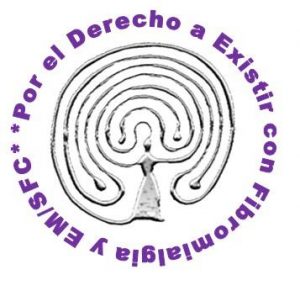
Verónnica Scutia founded the organization “For the Right to Exist” to pursue a legislative approach in Mexico. Image courtesy of For the Right to Exist.
“I knew full well that the only way to realize our rights was with a law that addressed the neuroimmune nature of these conditions and the potential disability that it generates.”
In the Mexican congress, the first step to a new law is often the presentation of a “point of agreement”, which is a non-binding resolution presented in either the Senate or the House of Deputies.
“Through the then-senator Angélica de la Peña — who was directly recommended to me by one of Mexico’s most well-known feminists — a first point of agreement was presented in the Senate chamber.”
“Then I worked with then-deputy Dr. Ricardo Monreal Ávila, who presented another point of agreement in the House of Deputies.”
Dr. Ricardo Monreal Ávila, a former law professor who has been involved in five different political parties and has served in both the Senate and the House of Deputies, proved to be a truly great help.
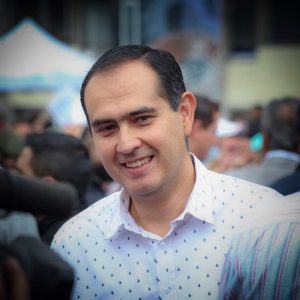
On April 14, 2020 Deputy Ernesto Palacios introduced the very first congressional bill to address neuroimmune diseases in Mexico. Source: Facebook page of Deputy Ernesto Palacios.
“I tried to meet with deputies and senators from all political parties. It was thanks to the intervention of political scientist Deputy Ernesto Palacios Cordero, a legal expert in issues related to health, that it was finally presented in April 2020,” relates Verónnica.
In a 2020 article Deputy Ernesto Palacios Cordero explains that “we are initiating a constructive dialogue within the chamber to guarantee access to the right to healthcare for these patients. We came to make inclusive constitutional reforms and that is why it is important to give visibility to these patients who are generally left in neglect despite the multiple needs they have in order to face and overcome their condition.”
Verónnica points out that “this initiative is the first national bill to be presented in Mexico regarding these conditions. We were going to hold a legislative forum in 2020 but it was cancelled due to the pandemic. The bill was sent to the legal department of the Secretary of Health for analysis. Unfortunately, I don’t know the current status — neither in the Secretary of Health’s office nor in the House of Deputies.”

Legislative efforts across Latin America
In fact, a race to find a legislative solution for patients with neuroimmune diseases seems to be unfolding throughout Latin America.
In Uruguay, the patient organization ASSCI began work on a legislative initiative in 2016. According to the organization’s president, Professor Claudia Souto, “after many years of work and activism we managed to get this bill presented. And two years later, it was approved unanimously.”
Although Uruguay’s 2018 law only addressed fibromyalgia, it was the first national bill to be approved by any country in Latin America. But Professor Claudia Souto explains that they faced significant obstacles to getting the law approved, especially “the political will of legislators and health authorities, because it is not desirable for them to pass laws for pathologies. Many doctors don’t believe in fibromyalgia yet! As if we were talking about religion.”
But the work in Uruguay continues, as the 2018 law still has not been implemented. Therefore, on December 8, 2021 patients demonstrated in front of the Public Health Ministry.
“In response, on the 22nd of December, we were received by the General Director of Health, Dr. Miguel Asqueta, who promised to address the issue and to work along with our organization so that we can contribute knowledge and experience,” explains Professor Claudia Souto.
In Argentina, there have been numerous legislative efforts, sponsored by different groups, both at the provincial and national levels. According to the patient association Fibroamérica, “the provincial laws passed only include fibromyalgia. They benefit the provinces of Tucumán and Santa Fe, and recently a law was passed in Entre Ríos.”
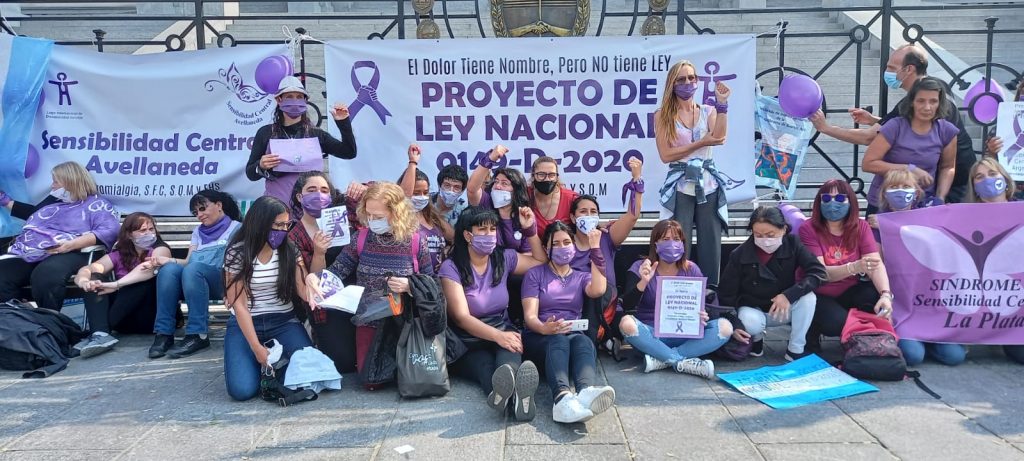
On August 31, 2021 Argentinian advocates demonstrated outside the Argentine Congress to ask for passage of a law protecting patients with ME/CFS and fibromyalgia. Image courtesy of Jessica89723899.
Some groups in Argentina have been fighting for national legislation to cover both ME/CFS and fibromyalgia. One such law was introduced into the House of Deputies in 2020. According to María Fato, of the group Sensibilización Central Argentina, “the law was held by the Health Committee and if it would come out of there, it would go to the full House of Deputies, then to the Senate, and then it would become law. A lot of bureaucracy, and we continue to suffer because they are not considered diseases in our health system.”*
In Chile, a 2019 bill stalled in the Chilean congress. “The bill presented in 2019 has not advanced at all since it entered Congress — in short there has been no approval or discussion,” explains Rodrigo Moreno Celis of Fundación Fibromialgia en Acción.
However a new bill in Chile, introduced in December 2021, has recently seen success. According to Marcela Cuevas of the Fundación Abracitos de Algodón, “it has already been approved by the House of Deputies, now it is in the hands of the Senate, and we hope they will then approve it.” This bill addresses fibromyalgia and non-cancer chronic pain.
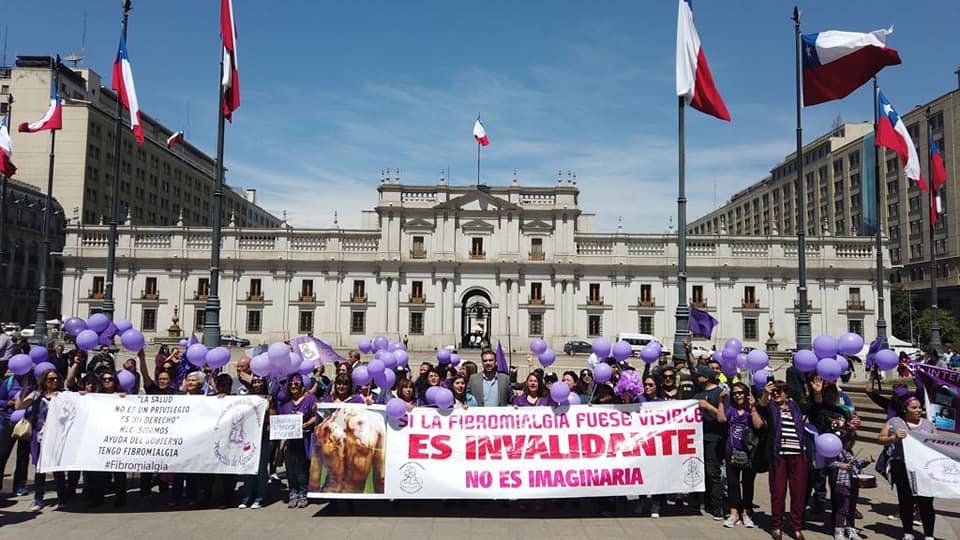
In October 2019, patient advocates in Chile gathered in support of a proposed law. Image courtesy of Amigos de la Fibromialgia.
In Brazil, there has been a real flurry of legislative activity — just in the last few years.
“We started by asking for help from the Federal Public Ministry and a lawyer told us ‘you have no rights because there is no law to provide them. You have to make the laws first’,” recounts Caren Cunha, president of ANFIBRO, an organization dedicated to legislative initiatives on behalf of patients with fibromyalgia and related diseases.
“We were at that time only 6 people, and Brazil is a big country, so we could not start with a federal law. So, in 2019 we started with a simple law, in small cities, that says that people with fibromyalgia could receive the parking pass for disabled parking and had disabled priority while waiting in line at establishments. Surprisingly, many patients came to us and it went viral,” adds Caren Cunha. ANFIBRO’s simple law has now been implemented in over 400 cities across Brazil.
“Now we are trying for national legislation, which is much more difficult and controversial,” explains Caren Cunha. Although many national legislative initiatives have been proposed, they have generally not advanced in the Brazilian Congress.
So, in May 2021, ANFIBRO sat down with a group of legislators.
“It was one of the more important things that we did because they created this working group. The deputies have influence in the senate — they talk to each other. They looked at us as 5% of the population, so we have some political influence. They asked which laws we wanted, and they made a group effort to move it on, and they approved the first law.”
So, on November 3, 2021, Brazil enacted a law establishing May 12 as a “National Day of Awareness and Confronting Fibromyalgia.”

On June 6, 2022 Brazilian ME/CFS advocates and family members of patients met with Deputy Erika Kokay to hold a public hearing on a national bill to help ME/CFS patients. Image courtesy of Síndrome da Fadiga Crônica.
Now the ME/CFS advocates in Brazil are busily catching up to ANFIBRO’s accomplishments. On February 16, 2021 a new patient organization was informally established: Síndrome da Fadiga Crônica. And by July 2021 they had already passed a law in the capital city of Brasília. This law is remarkably comprehensive, covering topics such as medical training, diagnosis, treatment, research, and awareness.
“We have other laws in the works. One in Rio Grande do Sul, one in São Paulo and the national law,” says Jeferson, of the new group Síndrome da Fadiga Crônica.
Their national bill, which was introduced into Brazil’s House of Deputies in August 2021, aims to provide comprehensive medical care for patients, training for doctors, and would entitle patients to sick pay and disability pensions. A public hearing on the national bill was held by the House of Deputies in June 2022.
Jeferson anticipates a difficult road ahead for the national law. “It’s been a tough fight. We have several problems, including: 1) Because the disease has not been robustly studied, we are pushed aside by the medical and scientific community. 2) Many patients go undiagnosed or are only diagnosed with other conditions that are often associated with ME/CFS, fibromyalgia being one example.”
To make matters worse, Jeferson points out that some prominent people in Brazil confuse symptoms with causes, promoting misinformation that a common symptom (or comorbidity) of ME/CFS, is actually the cause of ME/CFS. This confusion ends up undermining patient engagement.
Jeferson also laments that many patients are diagnosed with ‘adrenal fatigue’, a diagnosis that lacks a scientific basis. “Many patients are diagnosed with this and end up losing money, time, and often their own health.”

A way forward for advocates?
Despite all the challenges that face advocates for patients with neuroimmune diseases, advocates across Latin America have shown that with cooperation, determination, and accurate information, progress is indeed possible.
What about a coalition to unite advocates across Latin America?
“In 2014, along with an association from Spain, a Colombian association, and other associations from Chile, Argentina, Venezuela and other Latin American countries we tried to make a Hispanic-American coalition,” says Verónnica Scutia of the Mexican association Por el Derecho a Existir.
“We had planned to hold simultaneous marches in all the countries: Argentina, Chile, Uruguay, Puerto Rico, Costa Rica, Venezuela, Mexico and Spain. But again, the effects of the pathologies themselves interfered. When one was well, the others were not. If we had been healthy, we could have worked miracles!”
The idea of an international coalition turned out to be ahead of its time.
“At that time, many patients were in the closet. They did not want to say that they had it, they hid it. There was a greater stigma than there is today. Some preferred to believe that with yoga and positive thinking they would get better. They did not tolerate having their illusions shattered by scientific research. And they pretended socially that they were fine, until reality got in the way.”
But Verónnica remains hopeful. She believes that more communication among advocates from different countries can lead to common understandings that will make a future international coalition possible. “We would need international forums focused on the Latin American population,” she concludes.

Keep reading! In the final part of this series we hear from patients about the consequences of the disease on their lives and the common themes that arise in their stories: the controversy of exercise, gender bias, and domestic violence.
________________________________________________________________
*Unfortunately, the 2020 law covering both ME/CFS and fibromyalgia in Argentina recently expired while stuck in the Health Committee. A new law has been introduced in the House of Deputies to replace the expired law.
Eric Pyrrhus is a scientist with an interest in flaviviruses, picornaviruses, and imaging technology. With undergraduate training at Columbia University and the University of Pennsylvania, and graduate training at U.C. Berkeley and UCSF Medical School, he has studied biomedical sciences, bioinformatics, biomedical imaging, biosensors, computer science, artificial intelligence, and business administration.
Last edited by a moderator:

